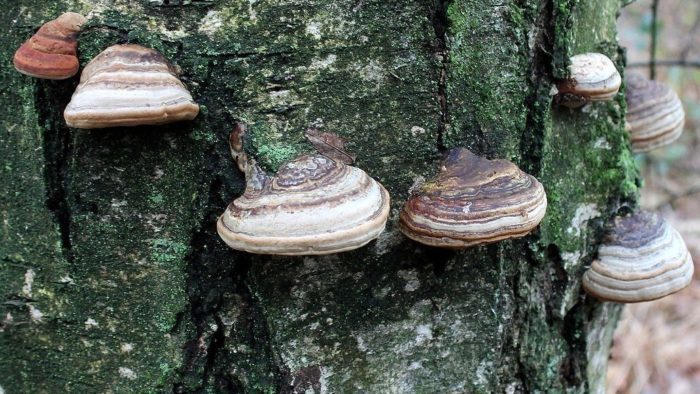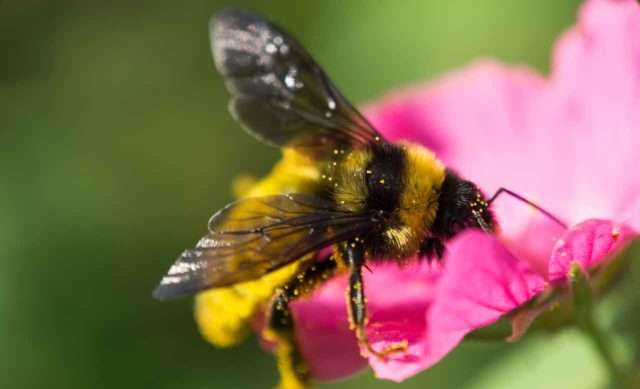The bees are dying and in massive numbers, a tragedy, given their importance to the ecosystem. It is estimated that one-third of the food that we consume daily relies on the pollination of honeybees. Globally, there are more of them than any other type of pollinating insect, making them the most important pollinator on Earth.Pollinators strongly influence ecological relationships, ecosystem conservation and stability, genetic variation in the plant community, floral diversity, specialization, and evolution. In tropical forests, woodlands, mangroves, and deciduous forests, many species of plants and animals will not survive if bees disappear. The production of many food sources such as seeds, nuts, berries, and fruits are all highly dependent on insect pollination.
Why Are The Bees Dying?
There are multiple threats to the bee population, but one of the major ones is a tic parasite known as Varroa destructor. The flat, round, parasitic pests with eight legs are invading honeybee hives around the world. At 2mm long, they latch onto the bees and feed on their tissues, transmitting devastating viruses along the way. Once a few of these tic parasites get into a hive, they reproduce at a rapid rate, decimating it from within.
The worst of these viruses is ‘Deformed Wing Virus’ or DWV, which results in wrinkled and misshapen wings and is affecting honeybee populations worldwide. DWV prevents the bee from flying, which weakens their immune system and halves their lifespan.
A bee that has difficulty flying is unable to pollinate many plants. If the infected bee does manage to visit a flower, it will leave behind a trace of the virus, which is then transmitted to other pollinators that visit later. It truly is a disaster of epic proportions and something that beekeepers currently possess no effective means of fighting.
U.S. beekeepers recently reported that 40% of their hives/colonies died during the year that ended March 31st, 2019. That number is up 33% compared to last year. ‘Colony collapse disorder” is real.
How Can We Help?

Fomes fomentarius, ‘Tinder Fungus.’ Caged bees infected with DWV have seen an 800-fold decrease in virus levels when dosed with Amadou extract from polypore fungi.
Believe it or not, mushrooms are being touted as a possible solution to the plight of the bees. Mushrooms are nutrient-dense, full of protein, iron, B-vitamins, and critical nutrients. Known health benefits include antioxidant, anti-inflammatory and antiviral properties. The variety of mushroom that may have the power to save the bees belongs to an order of fungi known as ‘polypores’, which are extracts shown in numerous studies to possess potent antiviral properties in humans against dangerous infections like swine flu, poxviruses, and even HIV.
Paul Stamets is a prominent mycologist; what he doesn’t know about mushrooms, isn’t worth knowing! Stamets has long suspected that the extracts of the polypore mushrooms have similar antiviral effects in bees as they do humans.
This theory first emerged back in 1984, when Stamets observed bees from his hive flying back and forth to a pile of fungus-coated wood. They appeared to be sipping at a liquid that had oozed from the mushroom’s mycelium, the fuzzy, white web of filaments through which fungi absorb nutrients. At the time, he believed the bees were attracted to the sugar in the liquid, as fungi break wood down into glucose. A few years ago, however, he woke from a lucid dream in which the bees were ingesting the liquid as a form of self-medication for some ailment, and not for the sugar.
After telling friends about this dream, one of them urged him to call Washington State University (WSU) and speak to Walter Sheppard, the world’s leading bee expert. Less than five minutes into the phone conversation, Sheppard knew he wanted to work with Stamets.
With the assistance of Sheppard, researchers from WSU, and the U.S. Department of Agriculture, a research program has been running for the past few years where sugar-water feeders are dosed with extracts from the mycelium of various species of mushrooms, allowing them to analyze the effect on bees with DWV.
So far, the results have been incredibly promising. Caged bees infected with DWV have seen an 800-fold decrease in virus levels when dosed with Amadou mushroom extract.
The field tests have seen a lower, albeit still significant, reduction in DWV with bee colonies fed reishi mushroom extract (well known in homoeopathic circles for its medicinal properties) experiencing a 79-fold reduction. Those fed amadou extract experienced a 44-fold reduction.
The field test also showed promising results for another aggressive disease that is ravaging the honeybee population, called Lake Sinai Virus; it saw a substantial 45,000-fold reduction when the bees were fed red reishi extract!
The research has only been conducted over two months in the summertime. Future studies need to be carried out over a full year, and, especially during the winter, as this is the hardest time for the honeybee.
Many questions are surrounding the mushroom extract itself. How does it work? Does it boost the immune systems of the bees so they can fight back? Or does it inhibit the virus directly? Perhaps it is something else entirely. Tests are needed in more beehives so we can learn more.
With the bee population disappearing, so much is at stake. Mushrooms and fungi have the potential to help, but they are complicated, and the journey has just begun. Scientists will be working to identify their benefits for a long time. Will they save the bees? Only time will tell.
